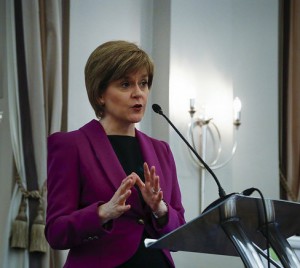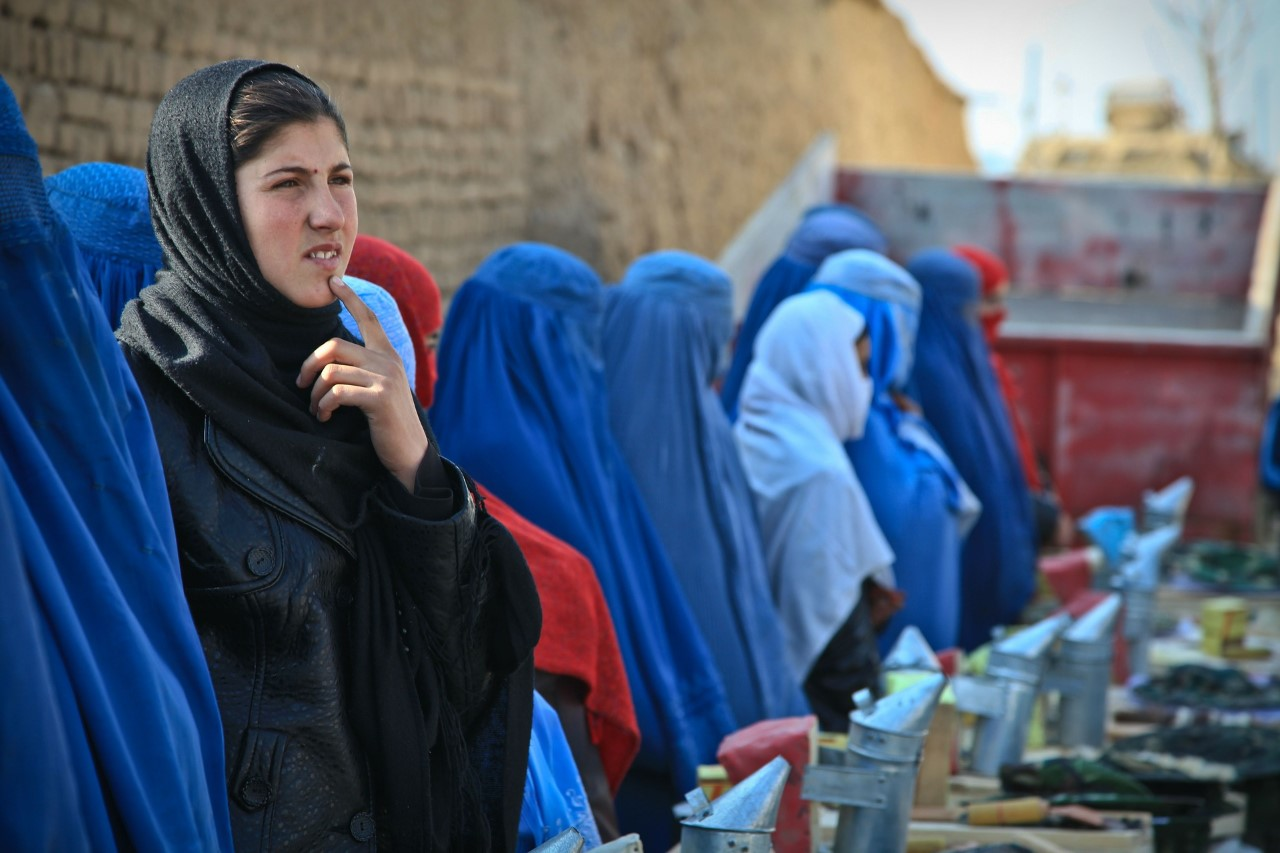Janine Ewen is a researcher in the field of Public Health and Human Rights and has been involved in overseas humanitarian work. Her current research is focused on the integration of Public Health in policing practice, with a focus on harm reduction.

On 26 March 2015, a conference organised by Scottish Women’s Aid took place in Edinburgh. The theme of the day was, ‘Violence Against Women (VAW): a Human Rights Violation’. A number of formal and informal agencies gathered to discuss progress in combatting VAW. The international context was presented by Rashida Manjoo, UN Special Rapporteur on violence against women and a Scottish perspective was provided by Lily Greenan, Chief Executive of Scottish Women’s Aid, the First Minister Nicola Sturgeon and Scotland’s Equality and Human Rights Commissioner Kaliani Lyle.
The day coincided with the 20th anniversary of the Beijing Platform for Action, which laid out the work that should be undertaken globally to improve and protect women’s human rights. The Platform for Action identified violence against women as one of the critical areas of concern. The significance of this anniversary emphasised the conference’s strong focus on the human rights impact of violence against women, globally and locally.
Less than a year since her last visit to the UK, Rashida Manjoo stressed the responsibility on all States to recognise their role in tackling violence against women. “It is my hope that we are working on a common quest towards complete elimination of violence against women,” she said. “My mission to the UK is a starting point; a tool for you in your advocacy and a challenge to us all”.
Manjoo delivered a forensic analysis of International VAW instruments and her own mandate across the globe.
“I rely on CEDAW (The Convention on the Elimination of All Forms of Discrimination against Women) to hold governments to account. Being a mandate has allowed me to measure and evaluate in various countries on the adoption of national legislation, including institutional and policy measures. 125 countries do have policies against VAW; however there are no laws in place to guarantee protection or justice, and that leaves a huge gap. On that note, we need to remember there are no rights unless we have justice. You may find this hard to believe, but women who I have spoken to in developing countries do not believe that violence exists in the developed world against women. That is what happens when you separate both worlds”.
Through her keynote address, Manjoo made it clear that a large amount of convincing is required in her work, despite over four decades’ recognition that VAW is a human rights violation. She noted that governments often favour soft law developments (quasi-legal instruments which do not have any legally binding force) over “hard laws”. However Manjoo said that while soft law is convincing, “it is not enough – we need to strengthen laws so States can be legally bound to respond to this provocative phenomenon”.
The next speaker, Scotland’s First Minister Nicola Sturgeon, emphasised that “we need to put women at the forefront in all means of living… I want to see women across boardrooms to diminish myths that women can’t fill ‘male roles’.. Women have a place in our society, which should be free from discrimination. It’s time for women to break the glass ceiling”. Sturgeon cited her appointment of a gender balanced cabinet in November 2014 as one example of this policy being applied.
Sturgeon, with input from Kaliani Lyle, Scotland’s Commissioner on Equality and Human Rights revealed why Scotland still has work to do on VAW. She noted that only 20 per cent of domestic abuse cases in Scotland are reported to the police. Even with this under-reporting, there were over 60,000 reports of domestic violence in 2012-13, 1372 reported cases of rape and 90 attempted rapes. Furthermore, 70 per cent of women seeking asylum in Scotland will have experienced violence in their lifetime.
Sturgeon announced the development of a new consultation in the Scottish Government into criminal justice reform which could see the creation of a criminal offence of domestic abuse and revenge porn. “I know that changing the law isn’t enough on its own – but it can play an important part in the wider social and cultural changes we want to bring about,” she said.
While the conference was well-received, it did not resolve confusion of the role men can and should play in achieving gender equality. There was also the vexed question of terminology in tackling violence against women: should it be referred to as gender-based violence, or women and violence? As the remarks of Rashida Manjoo on the day demonstrated, gender neutrality has, in some cases, prohibited the advancement of women’s participation and representation in society.
With that being said, equal participation of women and men in decision making was one of the goals of the Beijing declaration and has become an international plea through the HeForShe campaign. This movement towards solidarity for gender equality is important, as it endows men with the responsibility for achieving change alongside women. As Director-General of UNESCO Irina Bokova stated recently, while the struggle for gender equality must begin with girls, it must “also include boys, and it must work within community structures, to shape new social and cultural norms, to fight against violence and discrimination, to craft new forms of global citizenship.”


